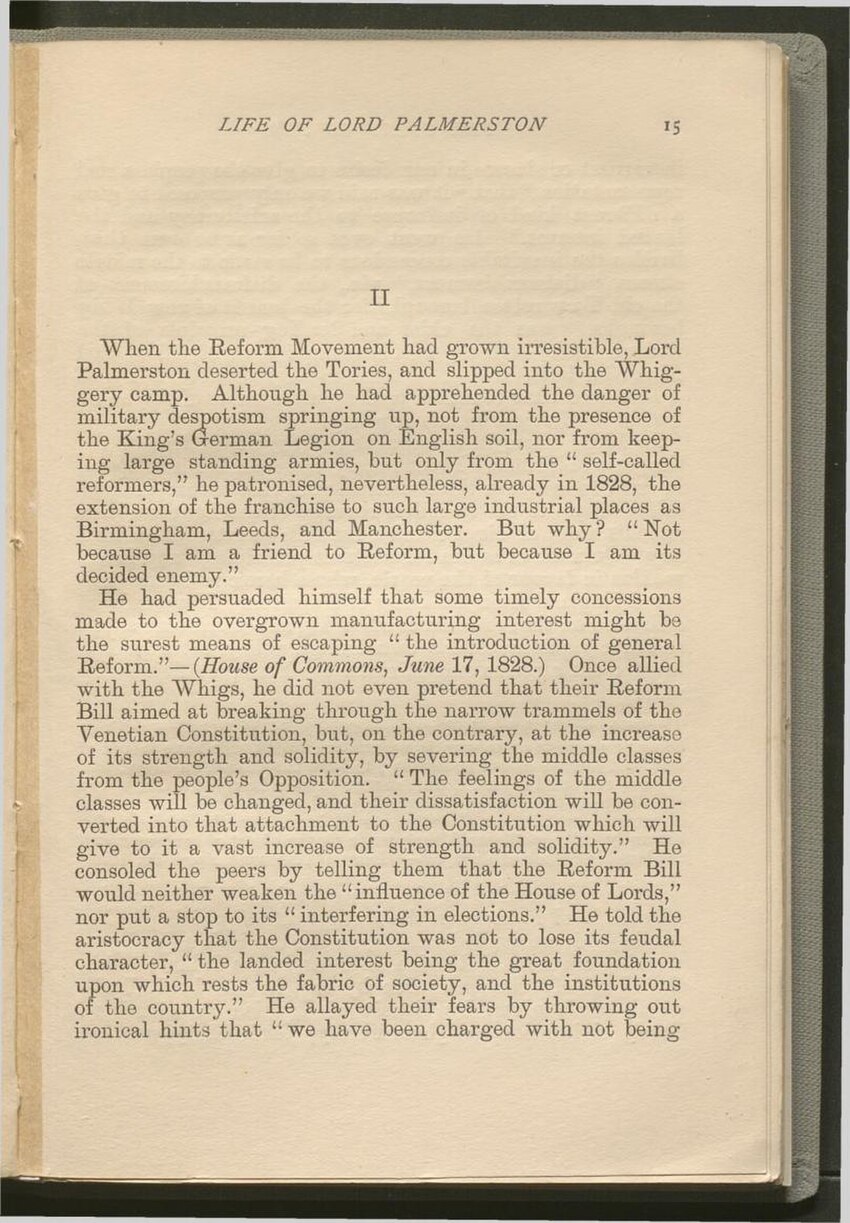II
When the Reform Movement had grown irresistible, Lord Palmerston deserted the Tories, and slipped into the Whiggery camp. Although he had apprehended the danger of military despotism springing up, not from the presence of the King's German Legion on English soil, nor from keeping large standing armies, but only from the "self-called reformers," he patronised, nevertheless, already in 1828, the extension of the franchise to such large industrial places as Birmingham, Leeds, and Manchester. But why? "Not because I am a friend to Reform, but because I am its decided enemy."
He had persuaded himself that some timely concessions made to the overgrown manufacturing interest might be the surest means of escaping "the introduction of general Reform."—(House of Commons, June 17, 1828.) Once allied with the Whigs, he did not even pretend that their Reform Bill aimed at breaking through the narrow trammels of the Venetian Constitution, but, on the contrary, at the increase of its strength and solidity, by severing the middle classes from the people's Opposition. "The feelings of the middle classes will be changed, and their dissatisfaction will be converted into that attachment to the Constitution which will give to it a vast increase of strength and solidity." He consoled the peers by telling them that the Reform Bill would neither weaken the "influence of the House of Lords," nor put a stop to its "interfering in elections." He told the aristocracy that the Constitution was not to lose its feudal character, "the landed interest being the great foundation upon which rests the fabric of society, and the institutions of the country." He allayed their fears by throwing out ironical hints that "we have been charged with not being
